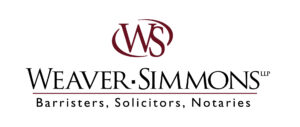A reflection on community learning experiences in Marathon
All of us can make contributions to communities, no matter where we are. Medical professionals and medical learners often have skills, interests, ideas, and energy to contribute to community life beyond what they offer in health care.
This summer, Logan Brennan, fourth-year NOSM University medical student, spent two weeks on a rural generalist elective in Marathon. Coincidentally, one of the high school volleyball coaches was hosting a volleyball camp in preparation for the coming season.
Logan—who has played at the varsity level and was a member of the Canadian National men’s volleyball team—offered to support the local team development in the evenings while he was on placement.
Coach Ray Lake, in an email after Logan’s elective, noted “What has astounded me is how well Logan can communicate how to do skills through words. I’ve seen growth in the players after three days that I have not produced in three years. It is a real gift for these kids to have someone of Logan’s calibre work with them.”
Dr. Sarah Newbery, Associate Dean of Physician Workforce Strategy at NOSM University, has been impressed over many years with the terrific ways that medical students contribute to community life. “As medical students learn in communities, there are opportunities to which we, as community preceptors, can invite their participation—whether in sport, music, or local events,” she says. “The sharing of skills, and gifts of time and energy impact people and communities in such positive ways.”
Logan reflecting on his experiences noted that rural medicine is all about community. “Health care and education are the backbone of a community,” he says. “Without stability, structure and opportunity in these key pillars, it is difficult to foster and grow community. Marathon is blessed to have exceptional community members who have demonstrated and taught me what rural medicine and community are all about.”
“On the first day of camp, I told the athletes that defence is 90% effort and 10% skill,” says Logan. “In some ways, rural medicine is similar. You may not be the most specialized or skilled, but if you show up every day with a purpose and the goal to be your best for your community, good things happen.”
“My goal for the athletes—and the physicians’ goal for me during my elective—was to demonstrate that great things happen in small places when good people come together to form a community.
“The best things around that I have ever seen, came from small towns and big dreams”
– Paul Brandt
“I am incredibly grateful for the opportunity to learn, coach and explore Marathon this summer. It is a wonderful community with exceptional opportunities and potential,” says Logan.
Long-time Marathon physician and NOSM University Professor, Dr. Eliseo Orrantia, reflected on his gratitude for hosting learners in the community. “Formally, they are here to learn from us, but we also learn and grow through them. That bidirectional learning is essential in the formation, development and importantly the maintenance of rural generalist skills and how we respond to the needs of the community together.”
Have a story to share about the impact of NOSM University students in your community? Let us know at communications@nosm.ca.



